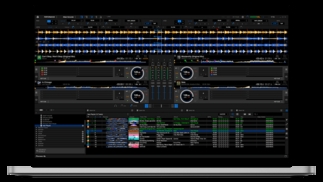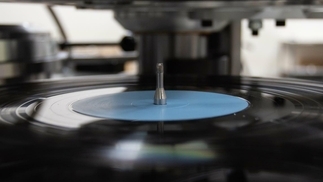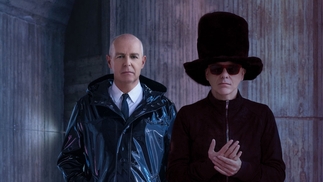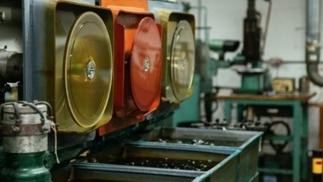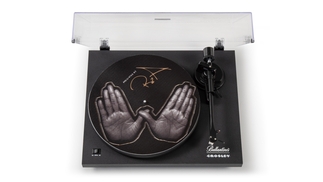Is vinyl-only culture encouraging elitism in electronic music?
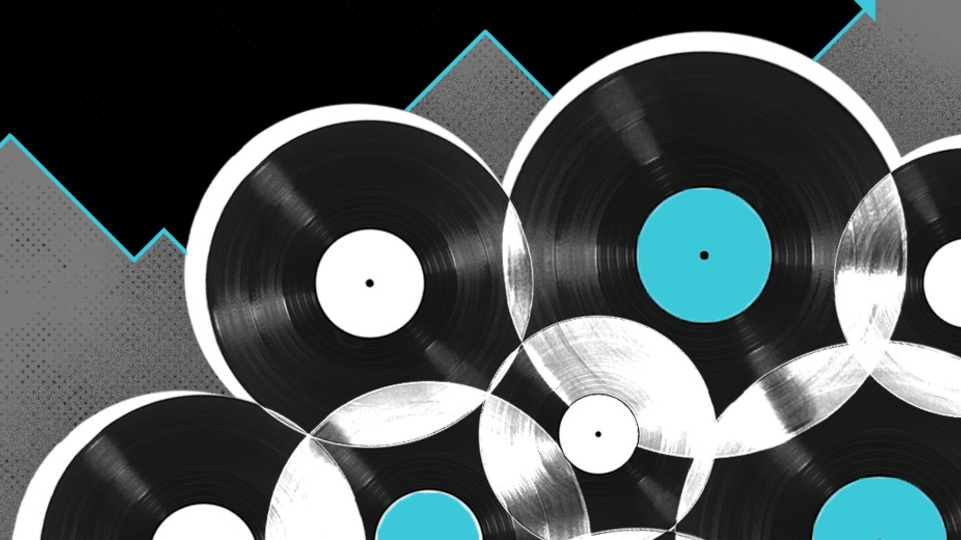
Vinyl is more popular than it’s been in years, and wax-only labels are seen as some of the best in dance music. But is our obsession with records all it’s cracked up to be — or is it just an exclusive club? We talk to DJs and label owners to find out more...
We're still deep in the midst of a resurgence in vinyl culture. Vinyl sales continue to rise year on year, up 12% in 2018, and vinyl-only sets in hotspots such as Ibiza remain a serious draw. Even Tomorrowland has featured vinyl-only stages in recent years, led by long-time record lover Sven Väth. In more underground circles, vinyl is central to popular “selector” festivals, and the culture that has sprung up around them, giving the medium and those who play it an aura of cool topped by little else in dance music.
Vinyl-only imprints continue to thrive, too. And depending who you ask, they’re arguably some of the best labels out there. Think Sex Tags Mania, Beste Modus or Tusk Wax — all innovative imprints releasing high-quality music to devoted fan bases. But when you’re on the outskirts of what feels like the most dominant movement happening in dance music, through no fault of your own, the hype can feel overwhelming. Unable to take part due to financial or other reasons, those without access can begin to feel excluded, and even looked down upon.
“The high cost of entry into doing any sort of vinyl practice, whether that be DJing or just collecting, makes it really difficult for people in tougher economic situations,” says 22-year-old Arnav Luthra. “To me, this is really upsetting, because what I really love about this scene is the inclusively of it, especially for queer people and people of colour.”
Working as a software engineer by day, the New York native and aspiring DJ says he got into techno when he was 19, and soon started DJing for his college radio station. Living in Pittsburgh at the time, he immersed himself in the scene there, regularly going to the 200-capacity club Hot Mass, a place Luthra calls “a really special spot”. Now he lives in New York City and is learning to produce, and his views on vinyl caught the attention of artists such as Red Rack’em, Ciel and Noncompliant, who responded to Luthra when he tweeted: “Why would anyone do a super-limited vinyl release with no digital, the only people who are gonna play your tracks are fuccboi DJs with more money than sense who call themselves ‘selectors’.” In explaining the tweet over Skype, Luthra says, “being very gung- ho about vinyl creates this gatekeeper attitude”. “That’s certainly correct,” says Tusk of UK- based vinyl-only imprint Tusk Wax. “There is a gatekeeper element there. Charging £10 or however many dollars that is, especially when it’s been imported, it’s a ridiculous thing, which means it’s exclusive in some degree. There are downsides to that, 100%. And I think anyone who tries to weasel out by saying vinyl labels don’t do that is missing the point.”
“I’ve always thought that rich kids are the death of culture. Even when they do good things with their money, even if the motivation behind them is altruistic, wealth makes the playing field uneven. It increases fees and costs across the board, and pushes out independents”— JOSH DOHERTY
WAX ONLY
Twenty years ago, the term “vinyl-only label” would have earned strange looks within the DJ community. DJing was done almost entirely on vinyl, and having decks, especially the industry standard Technics, was prerequisite to becoming a DJ. Of course, many artists made do with cheaper setups early in their careers because they had to, and there is a bohemian beauty to that. But as Luthra notes, today’s digital equipment revolution has changed the scene in very positive and democratic ways.
“What’s really wonderful about the lower cost of entry in the music world now, especially around DJing and DJ equipment, is that it’s really opened up the field to a lot more marginalised groups,” he says. “I think the reality is, say you’re coming from an upper-middle-class background, then sure, maybe you could work some summers and have your parents chip in, and you can get a turntable setup. But I think that’s not the reality for a lot of people and a lot of very important voices who we now get to hear in the DJ community more and more.” Technology isn’t the only thing that has changed in 20 years. Serious economic instability has been the norm for Luthra’s generation, and the economic reality of the world he’s grown up in has “absolutely” impacted how he views getting into music, he says. Right now, a minimum-wage worker in most of the US needs 2.5 full-time jobs to afford a one-bedroom apartment. And housing problems are so bad in the UK that on average, tenants spend more than half of their net income on renting a home. In London, that figure is an outlandish 89%. That’s partially due to rising rents — jumping 9% on average since April 2013 — and partly because earnings have not kept pace with the rent increases. This leaves future generations of DJs with less money to spend on music than previous ones, which means they’ll either turn further towards pirating, or forego vinyl entirely due to price point.

Posthuman
PRICE POINT
Even if you’re not a serious collector, vinyl is an expensive hobby. A new EP costs around £10 on Juno. That’s two or three times the price of most digital download stores, and less if you’re paying whatever you want on Bandcamp. And once limited edition runs of vinyl are sold out, Discogs users often ratchet up the resale price four or more times the original value, as a recent DJ Mag investigation showed, making purchases even more impossible for lower-income artists. And that’s just the wax. For the same price as one new Technics turntable, you can buy a brand new all-in-one digital DJ setup from a top brand with all the technical bells and whistles. Yes, vinyl sounds better to the audiophile. But this isn’t really a vinyl vs. digital debate. People are feeling the pinch everywhere, living in tighter quarters on less money to spend. Rising rents and DJ fees have also translated to higher ticket prices at clubs, meaning only a certain demographic can afford to attend. And as Secretsundaze noted in their column on selector culture for XLR8R, that’s the same demographic who can “more easily afford to buy the exclusive records they are hearing”, further exacerbating the exclusivity of the modern electronic music scene.
“I’ve always thought that rich kids are the death of culture,” says Posthuman’s Josh Doherty, who with his production partner and label mate Rich Bevan has run vinyl-only imprint I Love Acid since 2014. “Even when they do good things with their money, even if the motivation behind them is altruistic, wealth makes the playing field uneven. It increases fees and costs across the board, and pushes out independents. I think the influx of inheritance wealth behind a lot of current promoters is one of the things that has fed into these crazy high-price fees, and that in turn brings in corporate attention, which is all the antithesis of what this scene was meant to be about.”
To help combat what he calls “issues of wealth and class in dance music”, Doherty says he’s always tried to keep his records and events cheap, while avoiding “hype” bookings. And while he could make more money through his label by offering digital sales or represses — each release is limited to 303 vinyl copies — Doherty has held firmly to his beliefs.
“The lack of digital means that income stream doesn’t exist, especially if a track blows up and there’s suddenly loads of people that want it. But I made a conscious decision to be vinyl-only beforehand and I’m not one to sell out just because something is unexpectedly popular.” He also says that despite perceptions that vinyl better protects artists’ intellectual property than digital, if someone wants to rip your music, they will, no matter the format. “It definitely does happen. And surely it’s annoying for someone who wants to play a track they can’t get,” he says. So while vinyl won’t necessarily protect against pirates, or help support artists and labels through increased sales, what are the upsides to running a vinyl-only imprint? Well, for some labels, it’s a necessity. In dance music, bootlegging is fairly common. But it’s most common in the disco scene, where artists regularly sample older records, add a club-ready kick, and use limited vinyl-only runs as a way to fly under the radar of the major labels who’d want a pricey cut for clearing their samples. However, labels aren’t eager to talk about this practice — DJ Mag found it difficult to find anyone to own up to the fact that they had actively participated in dodging sample clearance by pressing straight to wax. But beyond shadowy clearance practices, Doherty says the chief upside is simple: brand loyalty.
“My records now sell out very quickly,” Doherty says. And the comments on the I Love Acid Discogs page are full of loyal praise. “The motivation can’t always be financial,” he says. “Sometimes it’s simply because you want to do something cool. Also, it’s about building a brand or a reputation. My labels overall make very little money directly, but they contribute into a greater whole that generates other things, like gigs, or people coming to my club- nights.”
“When the music becomes for everybody, it’s also for nobody in particular... No one’s going to fucking pay for it and no one’s going to value it, and then next week it’ll be gone” — TUSK
TANGIBLE
That fact surprised Luthra, who admits he’d assumed running a vinyl-only imprint was motivated by economics. He also says he understands how much things have shifted for producers in the digital era. While it’s sadly almost impossible for producers to make a living from releasing music alone these days, the motivation to press music onto vinyl might come from a desire to take back some of its lost value, even if that value is only intrinsic. “There’s something to be said for the physical tangibility to the release, and adding an inherent value to the music that you create,” he says. He also understands that vinyl is a generational thing, but he says that also comes with its own set of problems. “I’ve noticed a lot of older DJs look down on newer DJs who are only learning through digital DJing platforms like Traktor or whatever,” he says. “That’s how I got my start, personally.”
He feels this attitude only adds to the gatekeeper mentality surrounding vinyl. But Luthra also reveres digital formats in ways perhaps only his generation understands. “Having grown up a child of the internet, I tend to hold digital formats with high value,” he says. “I think there’s something really beautiful about being able to share music so easily across international borders. And I think the techno scene really doesn’t acknowledge that. There’s a high attachment to this older medium, which I understand, and I respect the DJs who grew up with this and stick with it. But my sentiment is that digital is underrated, and there’s an attachment to a medium that I don’t think is really serving the industry as well as it could,” he says.

Arnav Luthra
While Tusk understands Luthra’s sentiment, he also does not see the high accessibility of digital as a positive, coming back to the point of inherent value.
“When the music becomes for everybody, it’s also for nobody in particular,” he says. “The thing of, ‘Well you’ve created something, everyone should be able to experience it’ — well, yeah, but no one’s going to fucking pay for it and no one’s going to value it, and then next week it’ll be gone.” When Tusk sells a record, he knows it’s going to someone who will place high value in that object. There’s also a personal touch to the process that cannot exist with intangible, digital things. People hang records on their walls, gift them to friends, or sometimes write notes on the sleeves to individual artists thanking them for their support. “All these different things can happen with this physical product, which excites people and takes people back to something they remember from when they were a bit younger. It has so many layers of joy to it far beyond just a simple, ‘I’m doing this to be cool’.”
But it is cool right now, Tusk acknowledges. “It’s important, it’s trendy — it’s clearly far more socially significant [than it has been],” he says. Though that veneer of hype often belies the colder reality lurking underneath.
“Cool isn’t something that you can buy a house with and set a family up with,” he continues. “I have seen people who have been 100% committed to doing vinyl and making vinyl and it being their all, and they would look back after 20 years and go, ‘Fucking hell, I should’ve spent more time at college. I should have got a better job, I should have married that girl who told me stop buying records’. So you have to be careful of thinking that there’s some kind of fundamental shift going on.”
Certain DJs can and do ride the wave of hype, sometimes becoming successful in the process. “Which is fine,” Tusk says. “I don’t mind people playing the game who want to look cool.” But he again reminds DJ Mag that it’s important to try and see the bigger picture. Despite the cycle we’re in, he understands vinyl may not last forever, and that the majority of people who buy records are “old dudes with a little bit of money”. Of course, that doesn’t mean there’s no alternative to the status quo. Digital DJ equipment will likely become more affordable and well-designed, not less. And understanding why some artists might want to or need to use that equipment is vital to encouraging a diverse younger scene. Vinyl-only labels can follow the example of Lobster Theremin, which offers digital sales via Bandcamp once the vinyl run is sold out. And while that won’t be an option for every label, in an era when music production is less profitable than ever, it’s certainly something to be considered. But what’s most important to remember, Tusk says, is that we’re all in this together.
“If we’re doing underground dance music and it’s connected to the DJ and clubs, we’re all on the same side.”

